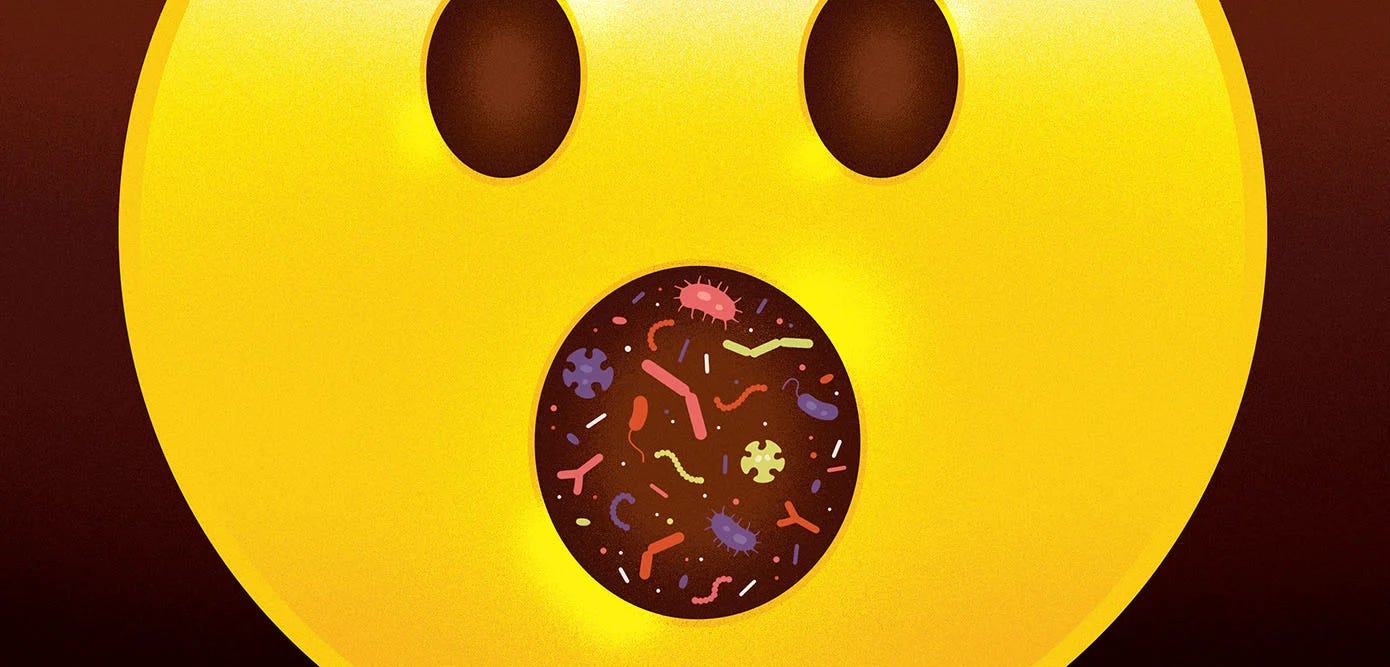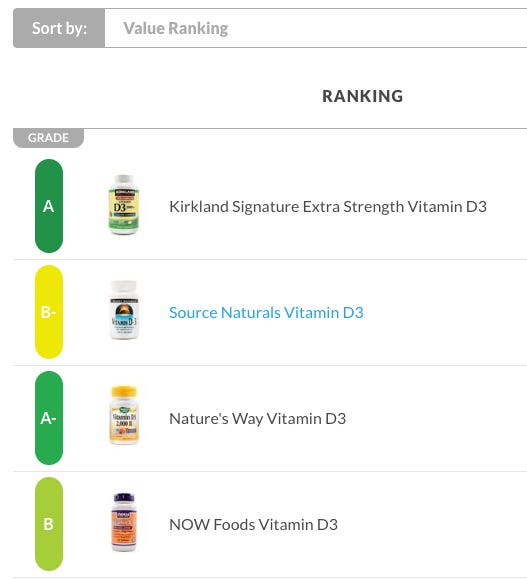Personal Science is the process of using the scientific method to solve problems and get better results on an individual, personal level. Following the motto of the Royal Society, established in 1660, nullius in verba, we take nobody’s word for it. We rely on our own observations and make up our own minds.
This newsletter, published every Thursday, is a weekly summary of a few references we think will be interesting to anyone who wants to be a Personal Scientist.
Oral Microbiome Reloaded
A previous post discussed the oral microbiome and some old data showing my mouth microbiome before and after a visit to the dentist. For the past few months, I’ve been trying a new direct-to-consumer test from Bristle, a Y-Combinator startup that for $120 will do a whole genomic sequence of the microbiomes in your mouth. I received my results in about three weeks and wrote about my experience in NEO.LIFE (“It’s now possible to track your oral microbiome”):
On the first and second categories, “beneficial bacteria” and “tooth decay,” my results are through the roof, thus confirming my apparent resistance to cavities.
But more worryingly, I score poorly on “gum inflammation” (9.4, where healthy people are 2.2) and “halitosis” (I’m a very high 9.2 out of 10. They don’t say if that’s healthy, and I don’t want to know). A final score for “gut inflammation” (I’m moderate 4.1) seems like it would be unrelated to teeth, but as I described, the oral microbiome affects the entire body.
See the article for all the details of that first test. Since then, I began using a daily mouthwash before testing again six weeks later. All of the numbers quoted above significantly improved: “gum inflammation” 2.5, “halitosis” 1.4, “gut inflammation” 2.3.
Was it the mouthwash, or something else? As always with the microbiome, it’s hard to say. I posted all the details about my followup testing, including the full PDF copies of my results at Github Personal Science.
Cochrane Reviews
If we learned anything in the COVID pandemic, it’s that you can find a study to prove and disprove just about anything. Personal Scientists have always been skeptical about “studies” and “experts”, so this isn’t a new insight, but sometimes it’s worthwhile to review which professionals have proven to be most useful.
The Cochrane Library and its associated Cochrane Reviews, is an international non-profit organization focused on ridiculously strict independent reviews of the evidence for and against various clinical treatments. As we regularly like to emphasize, Personal Scientists take nobody’s word for it, including highly-acclaimed organizations like Cochrane, but we can learn from others who believe in the same principles. My experience is that Cochrane’s level of proof is highest of any organization I follow. If I have any complaints, it’s that their obsession with the highest quality evidence means that they are often slow to recognize when something does work.
For example, here’s what they say about face masks:
We are uncertain whether wearing masks or N95/P2 respirators helps to slow the spread of respiratory viruses.
Hand hygiene programmes may help to slow the spread of respiratory viruses.
Note the tentative language: “uncertain”, “may help”. You could apply the same conclusion to a review of evidence for carrying a rabbits foot. To a Personal Scientist, this neither proves nor disproves the usefulness of masks (or rabbits feet, for that matter). The only way to know if it works for you is to try it yourself.
Incidentally, the fact that during the biggest pandemic of our lifetimes nobody bothered to conduct a high-quality test of face masks is by any standard an abysmal failure of those who direct public health. Given how little we can rely on experts in matters like these, this should be a wakeup call for the rest of us to develop better Personal Science skills. It’s unwise to delegate your healthcare beliefs to somebody else.
Supplements and Supplement Testing
Too many people take supplements because they read somewhere that such-and-such vitamin is important. That’s fine — it’s good to be curious and try new things — but how will you know whether the claim is true? A Personal Scientist looks at this as an opportunity to experiment.
Examine.com is an independent educational organization that claims to have the largest database of nutritional and supplement information on the internet. Elizabeth Van Nostrand studied their site and concluded that, while the summaries are well-done and extensive, they’re incomplete. “If a particular effect is important to you, you will still need to do your own research,” she concludes. (By the way, Elizabeth’s writing at Aceso Under Glass is a great resource for Personal Science in general, definitely worth following).
If you become interested in a particular supplement, please also check the reviews at Labdoor.com. Their independent technicians collect hundreds of off-the-shelf supplements and run them through laboratory-grade testing equipment to determine how closely the products meet the specs on the label. You can sort the results by quality as well as value. Here’s an example summary for Vitamin D.
In the Hopper
We’ve been studying the new Viome Full Body Intelligence microbiome test, which now includes saliva, as well as blood and gut sampling. We’ll give you a full review, as well as thoughts on other microbiome tests and much more in future issues.
Meanwhile, please leave a comment if there’s something else you’d like us to cover.




